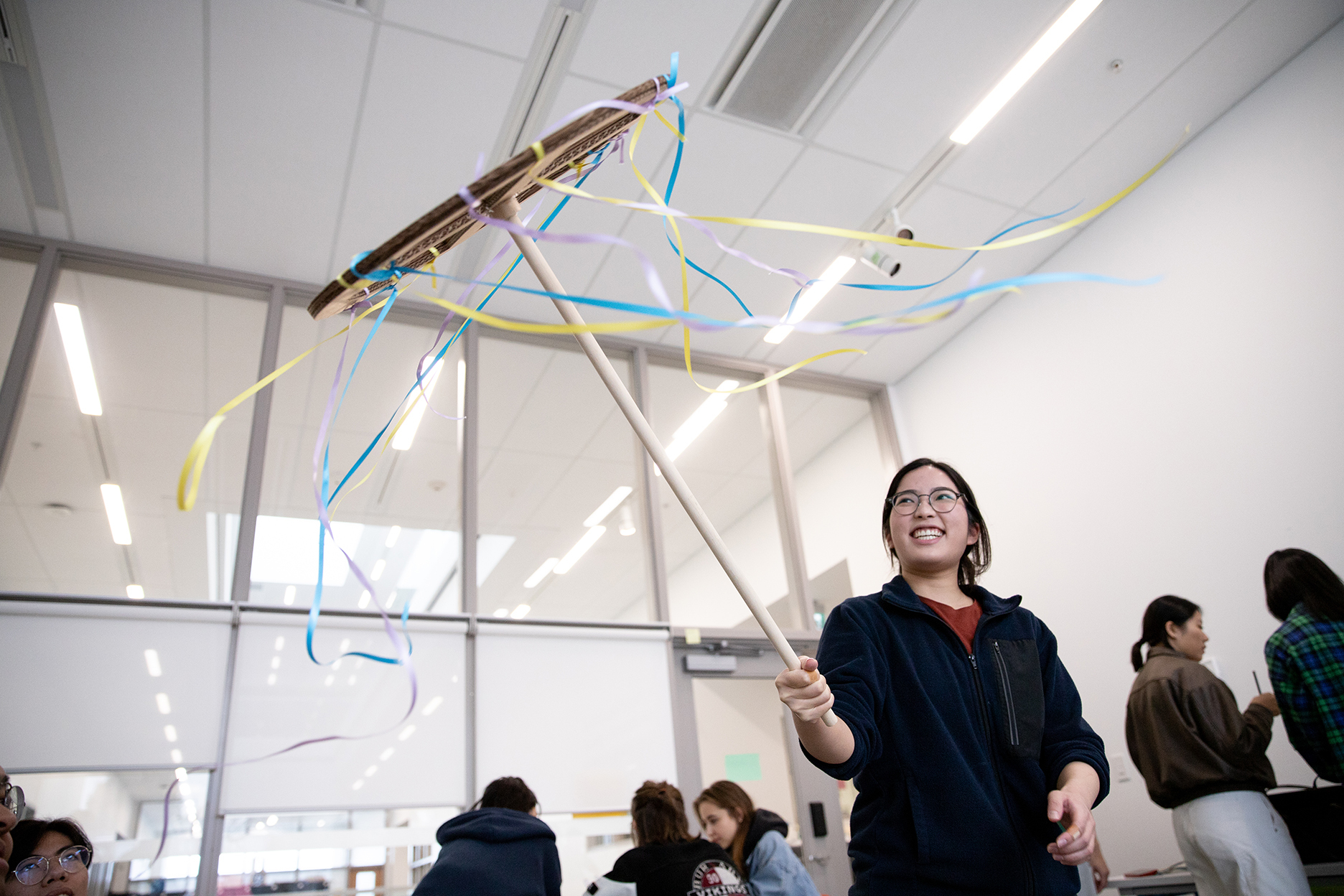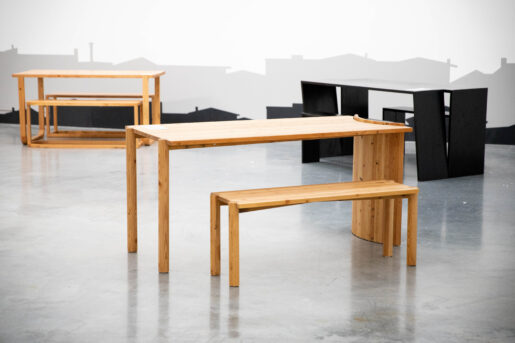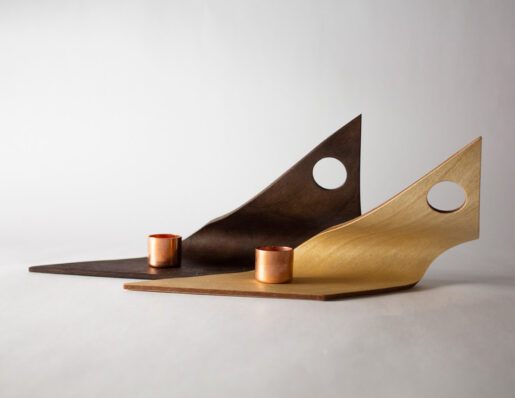Students Showcase Sustainable Structures for Community Gatherings at Robson Square
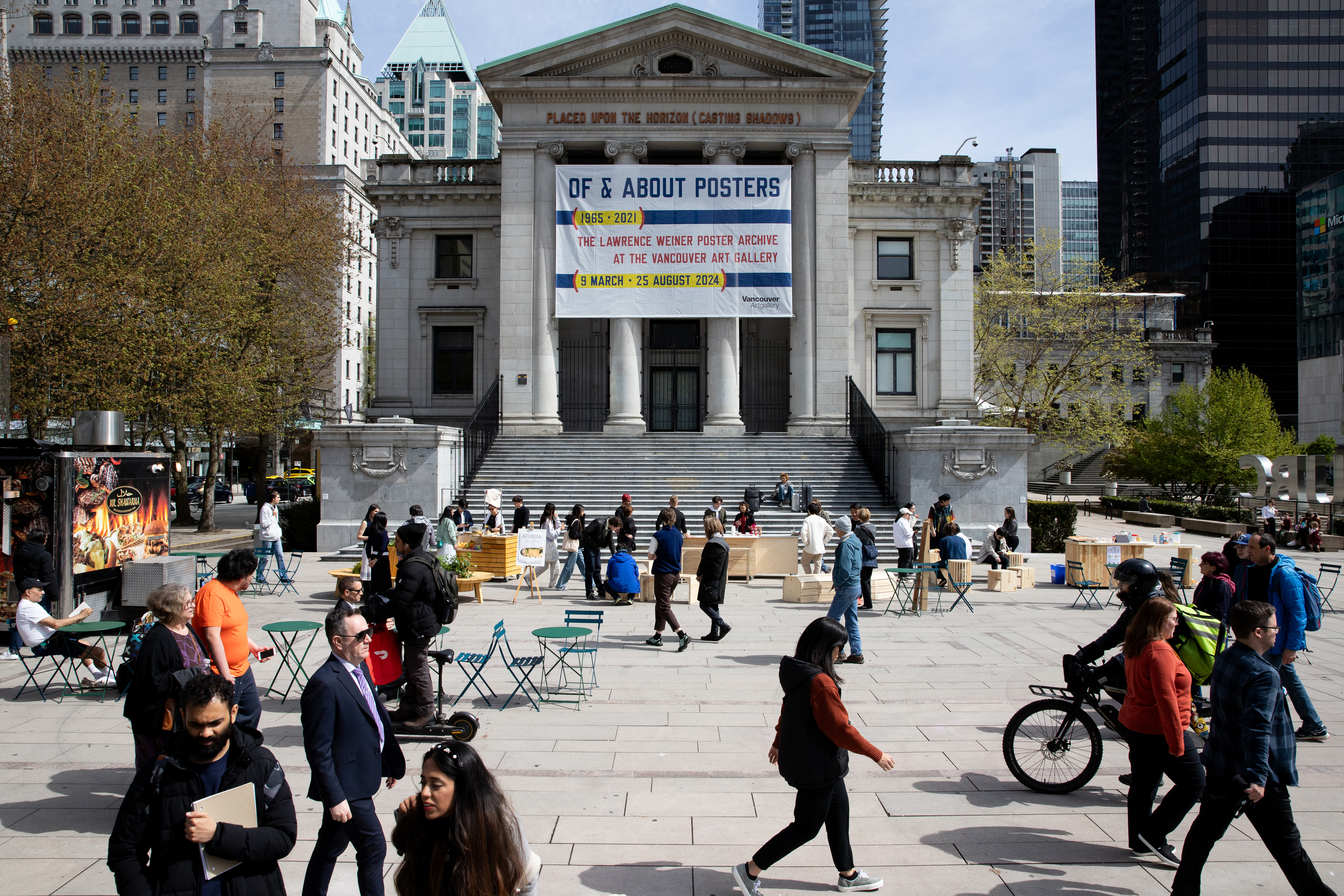
From food carts to seating areas, the public immersed themselves within the footprint of eco-conscious creations designed and built by students from recycled lumber. (Photo by Perrin Grauer)
Posted on
The Cart Project saw food carts and seating areas made by students from recycled lumber roll out for public enjoyment in the heart of downtown Vancouver.
Innovation and sustainability recently converged at Robson Square as third-year Emily Carr University of Art + Design (ECU) students showcased portable environments designed to accommodate food preparation, service and enjoyment.
From food carts to seating areas, the public immersed themselves within the footprint of these eco-conscious creations designed and built by students from recycled lumber.
ECU faculty member Christian Blyt, who taught the class of student designers, says A Simple Supper (also known as the Cart Project) spotlights the versatility, durability and aesthetic potential of recycled lumber. It also demonstrates how industrial design can encourage positive community interaction while remaining mindful of the impact objects have on the environment.
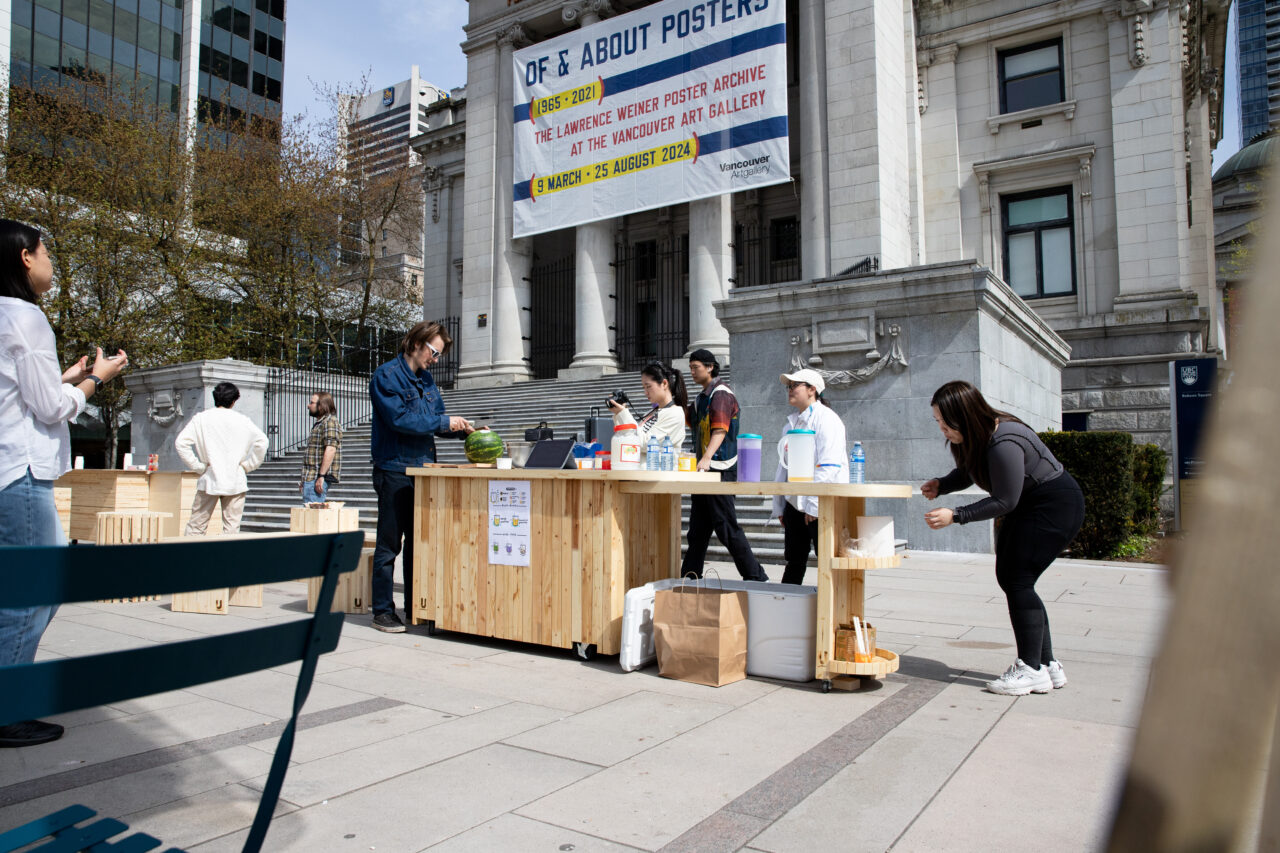
(From L): ECU students Yoona Kim, Nao Ide, Ilya Koveshnikov, Oskar Deban, Hanna Kim, Kevin Xing, Ariana Tan and Victoria Chan set up for the day at Robson Square Plaza in downtown Vancouver. (Photo by Perrin Grauer)
“Thinking of materials like waste wood as ‘disregarded resources’ can help us see the huge potential these products hold,” Christian says. “With the Cart Project, we’re proposing a new way of living where we view our material goods as a source of perennial opportunity rather than as single-use wares with a finite lifespan.”
The Cart Project is a collaboration with local startup Can-Do! Green Technologies’ product, Urbanjacks, which provided upwards of 2000 lineal feet of sustainable lumber used by students to build their structures. Urbanjacks diverts wood waste from locations such as construction sites and movie sets and recycles it into premium lumber.
“There are two reasons we’re doing this project: First, to learn from the next generation of designers and showcase our products with them. Second, we are on target to transform trash into treasure,” says Urbanjacks founder Aaron Laslo. “We see some bright stars coming from Emily Carr University.”
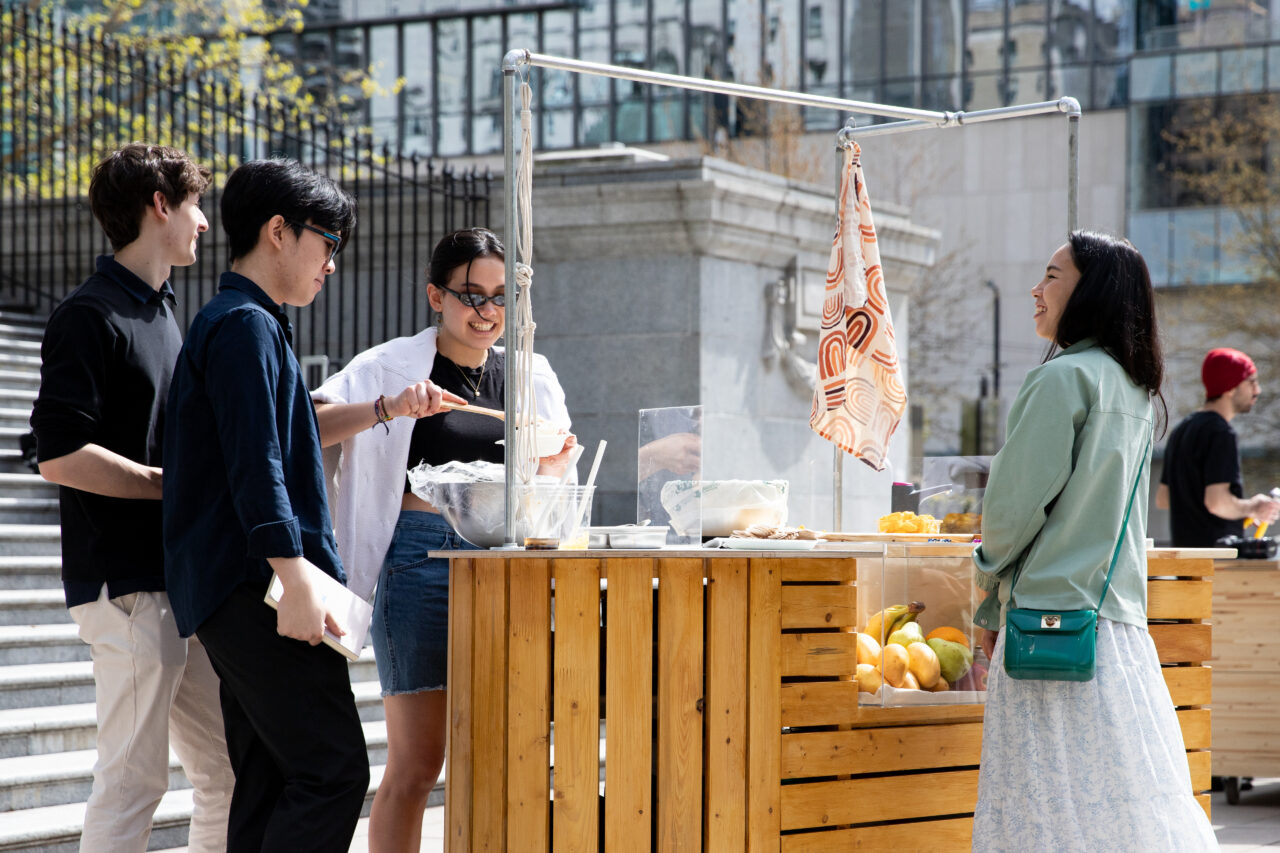
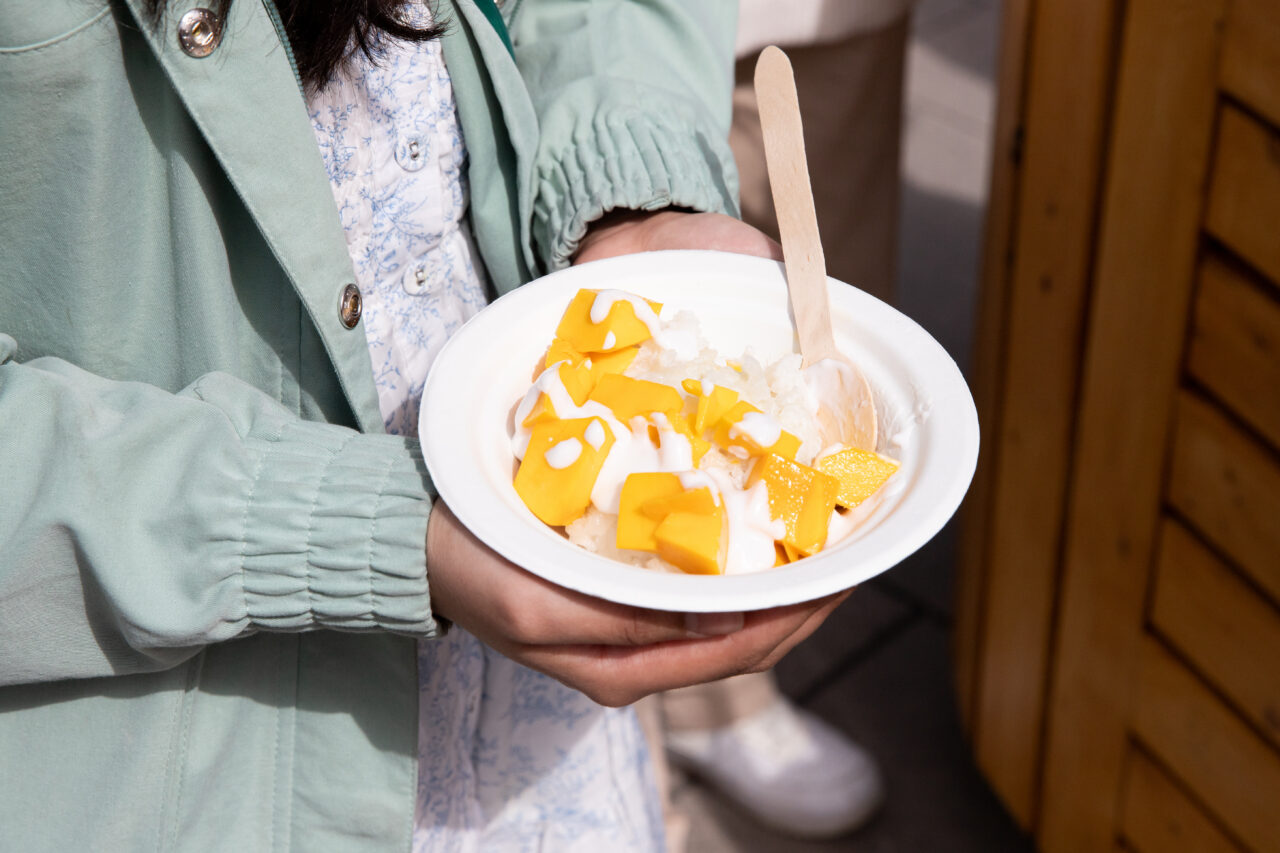
(Top, from L): ECU students Mathis Pourier, Jay Ang and Anitta Twardzik serve food (bottom) to friends and members of the public. (Photos by Perrin Grauer)
Urbanjacks estimates that upwards of 11 million tonnes of wood waste – worth roughly $11 billion USD – are generated annually in North America. Creating new building materials from this waste saves money and lowers CO2 emissions while generating wood without cutting down trees.
Design student Aradhita Virmani worked on a team with classmates Luke Dunn and Eden Eisses. The trio developed a modular bench system replete with edible plants to create an oasis of greenspace and complement the food served by other teams. Titled Afuera, the seating area combines traditional joinery with innovative techniques such as CNC-machined parts and bent laminations.
“Putting my project out here in the city for everyone to experience has been one of the biggest achievements of my life yet. It makes me feel proud to share this with everybody,” she says. “Our lives are so busy, and something that was important to us was giving people a break to sit down, have something to eat and focus on nature once again. This project brought that together. So I’m glad we were able to put this out in the public.”
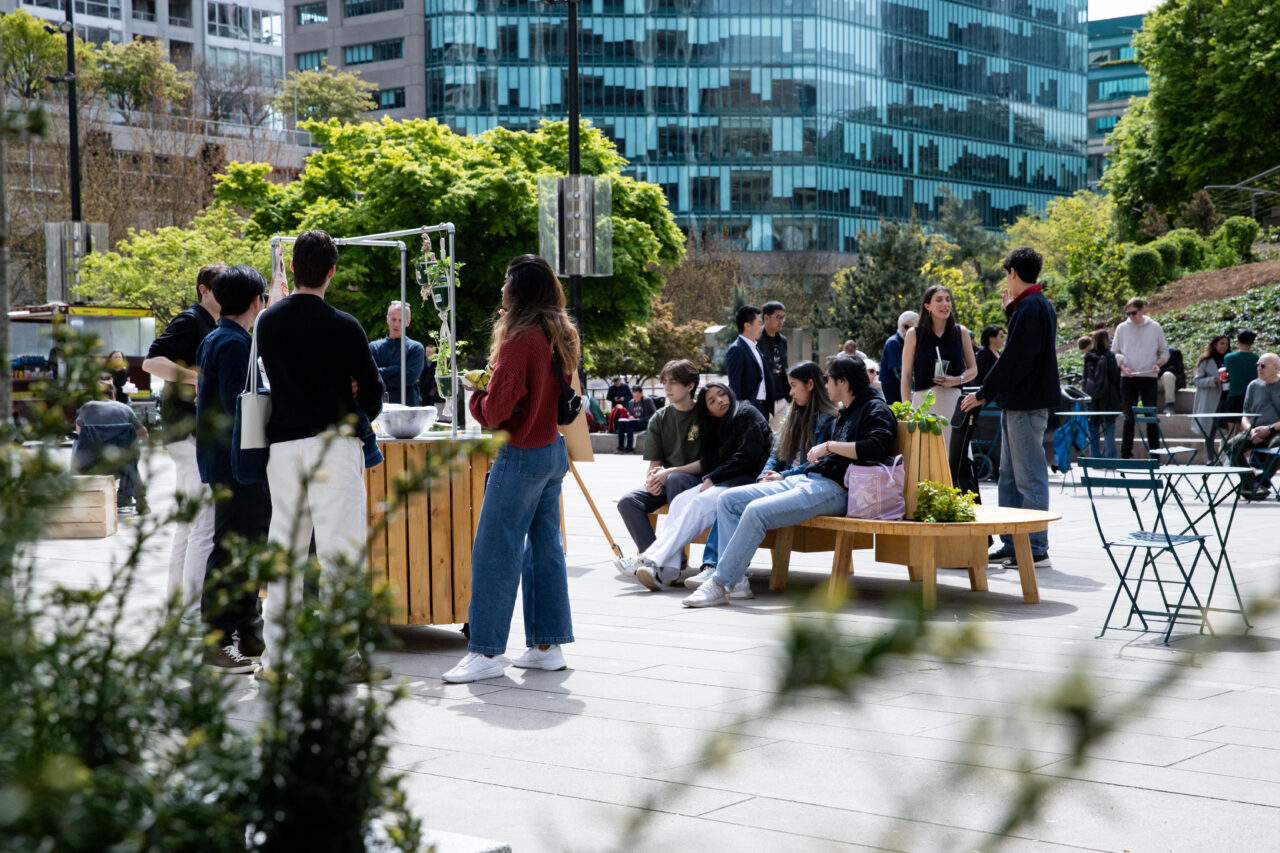
“Thinking of materials like waste wood as ‘disregarded resources’ can help us see the huge potential these products hold,” says designer and ECU faculty member Christian Blyt.
Design student Maxim Rockell was part of a team with classmates Vic Zhang and Nao Ide. They built a pair of modular seating systems, titled Salio and Candidus, to offer a variety of rest and play possibilities for people young and old.
“It’s cool to see them be used, especially here. The whole time, I’ve been looking at people sitting and eating. That’s very rewarding,” Maxim says, adding that the hard work and long hours that went into the effort felt special as well.
“It’s nice the nights where you’re [in the studio] ’til closing, the school is empty, you’re still at work and everyone you know is still there too. It feels like you’re part of a bit of a secret club and it’s fun.”
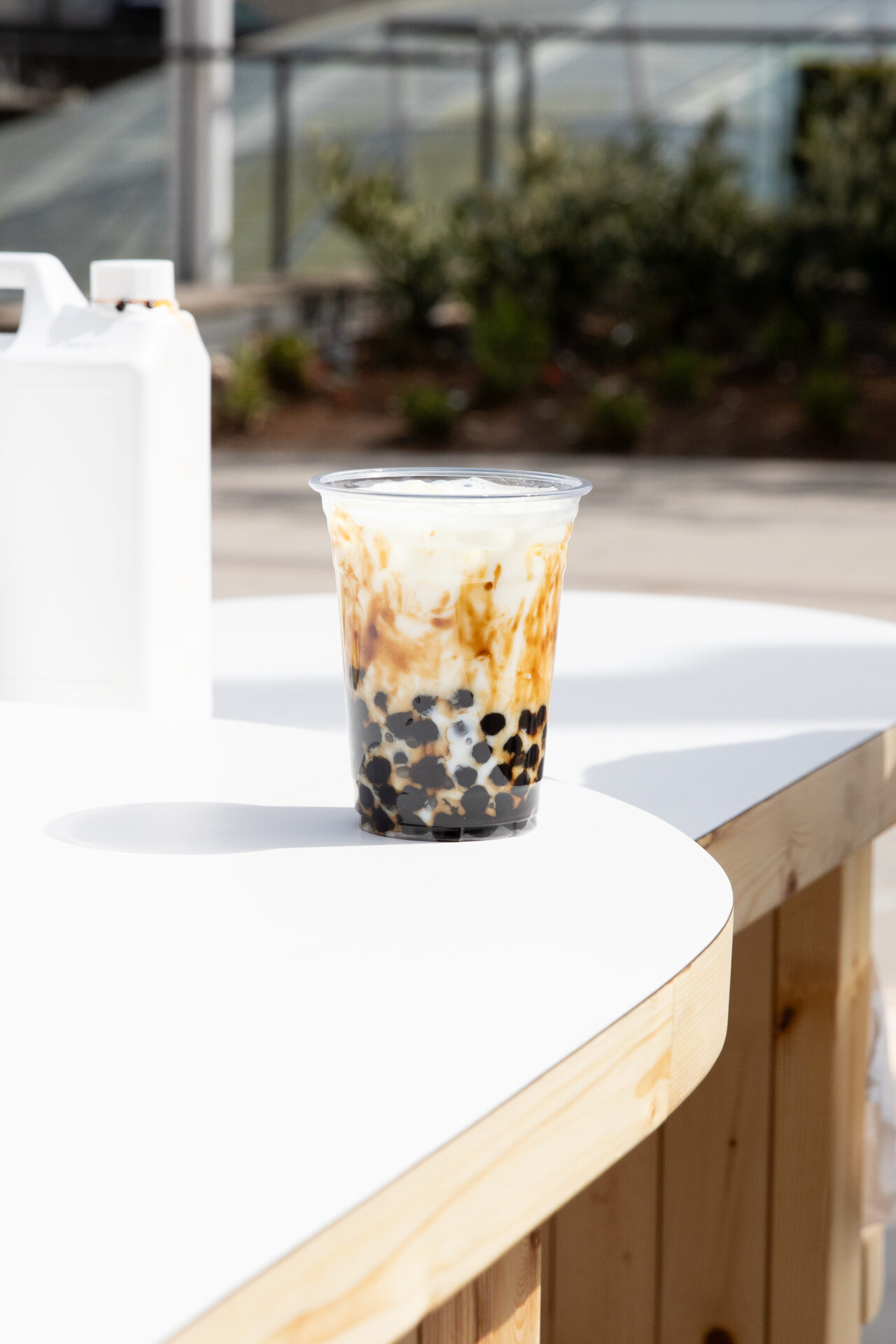
A freshly made boba tea rests on a food cart made from recycled lumber. (Photo by Perrin Grauer)
Urbanjacks plans to establish a presence in Ontario, Los Angeles and Georgia in 2025. Visit Urbanjacks online and follow them on Instagram to learn more about their products and services.
Visit ECU’s website to learn more about studying Industrial Design at Emily Carr.
